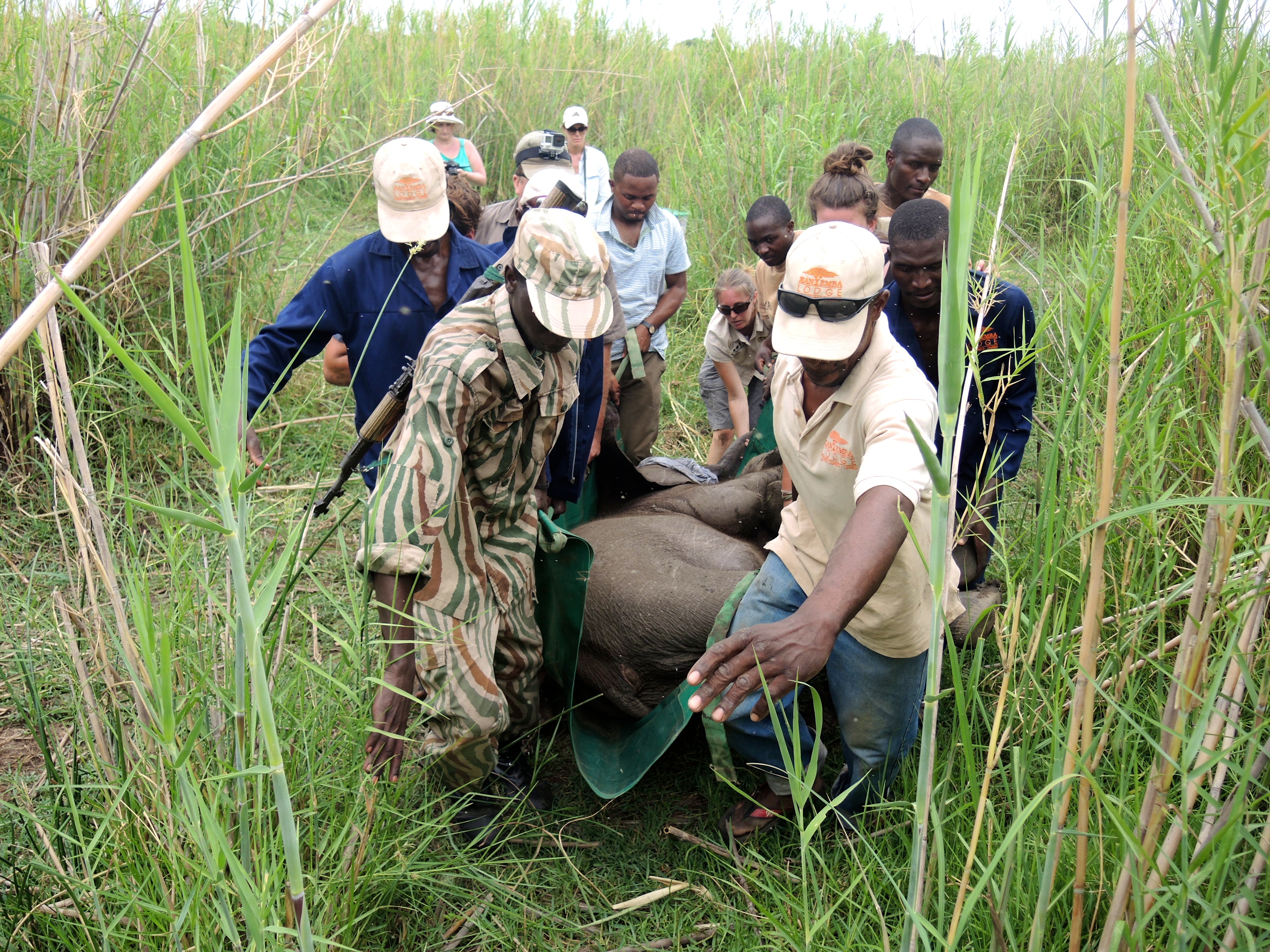
Last Monday Game Rangers International’s Elephant Orphan Project rescue team set out to save a young elephant alone on a tiny island in Lower Zambezi, Zambia. Now, after a lot of hard work and a lot of manpower, the orphan herd at Lilayi Elephant Nursery is happily welcoming the newcomer with open trunks.
One of the trickiest, but most crucial, components of any successful animal rescue is finding the target in time. While you’d think it’d be hard to miss a baby elephant, weighing some 220lbs from birth, these gentle giants are excellent at hiding when they want to. And some herds roam areas still mostly unclaimed by humans.
That’s why groups like Game Rangers International, a not-for-profit organisation founded in Zambia back in 2008 with the ongoing support of the David Shepherd Wildlife Foundation, run campaigns aimed at encouraging locals in elephant inhabited communities to report orphaned elephants ASAP. And based on last week’s happy affairs—their methods are working.
On January 8th staff at the Muchichili Safari House reached out to the Elephant Orphan Project (EOP) team, to report an immature elephant that appeared to be all on its own, isolated on the tiny Zambezi River island of Hulungwe. Luckily Ivan, the EOP’s Senior Keeper, was already close by, hosting sessions to raise orphan awareness. With the aid of near by Kanyemba Lodge and Jacana Enterprises, Ivan was able to travel to the river island and locate the youngster. From what he could tell, the orphan was still milk-dependent, but clearly tough. Local fisherman’s sightings put him alone on Hulungwe for up to two weeks.
The EOP team monitored the loner for a few more days, just to ensure there was no chance of a happy reunion with his lost herd. But on the morning of the 11th, the full rescue team drove to Lower Zambezi, and with the help of staff and equipment compliments Kanyemba Lodge, and veterinarian Dr. Innocent N’gombwe from Zambia’s Department for National Parks and Wildlife, set out to rescue the orphan.
After a half-hour boat ride, the team reached the island, found the youngster, and sedated him. It took 10 people to carry the giant conked-out baby to the boats. Once back at the Lodge, it took even more work to get the still asleep youngster into the Land Cruiser that would transport him to Lilayi Nursery, kindly provided by Conservation Lower Zambezi (CLZ).
The young male didn’t seem too bothered when he awoke during the drive, calmly standing in his grass-lined crate. The brave orphan was named Muchichili, the Goba word for winter thorn, a massive variety of acai tree common on Hulungwe that can withstand freezing and in dry spells mine for aquifers up to 80m deep.
Despite presenting the hallmarks of a sickly, stressed out elephant—malnourishment, dehydration, exposed ribs, trunk warts, and thin, patchy skin—Muchichili is as resilient as predicted. Nursery staff reports the little guy has so far been nothing but eager for attention—clearly desperate for company—from both his caretakers and the other three elephants already residing in the LEN. The two elder members of the orphan-herd are particularly interested in the newest member of their group, which could mean lots of extra love and guidance along the way for Muchichili.
Muchichili has a lot of people to thank for his safe rescue, and second chance at life. Lilayi Nursery is just one of four facilities and six major projects run by Game Rangers, all focusing on different stages of the elephant rescue and rehabilitation process.
For the next few months Muchichili will get 24-hour intensive care. It will take a tremendous amount of work to help the youngster recover both physically and mentally, gaining the confidence he needs to one day return to the wild. But for now, the little’s guys major worries are over—aside from the usual elephant concerns like which branches look yummiest and being first in line for dust baths.
Once Muchicili’s graduated from Lilayi, he’ll move to GRI’s Kafue Release Facility, where he’ll roam with even more elephants in a larger enclosure, preparing for eventual release in Kafue National Park— the country’s largest and oldest national park.
To find out more about elephants like Muchichili, and to learn how you can support Game Rangers International through Love Nature, have a browse of our Official Partnership Page.

